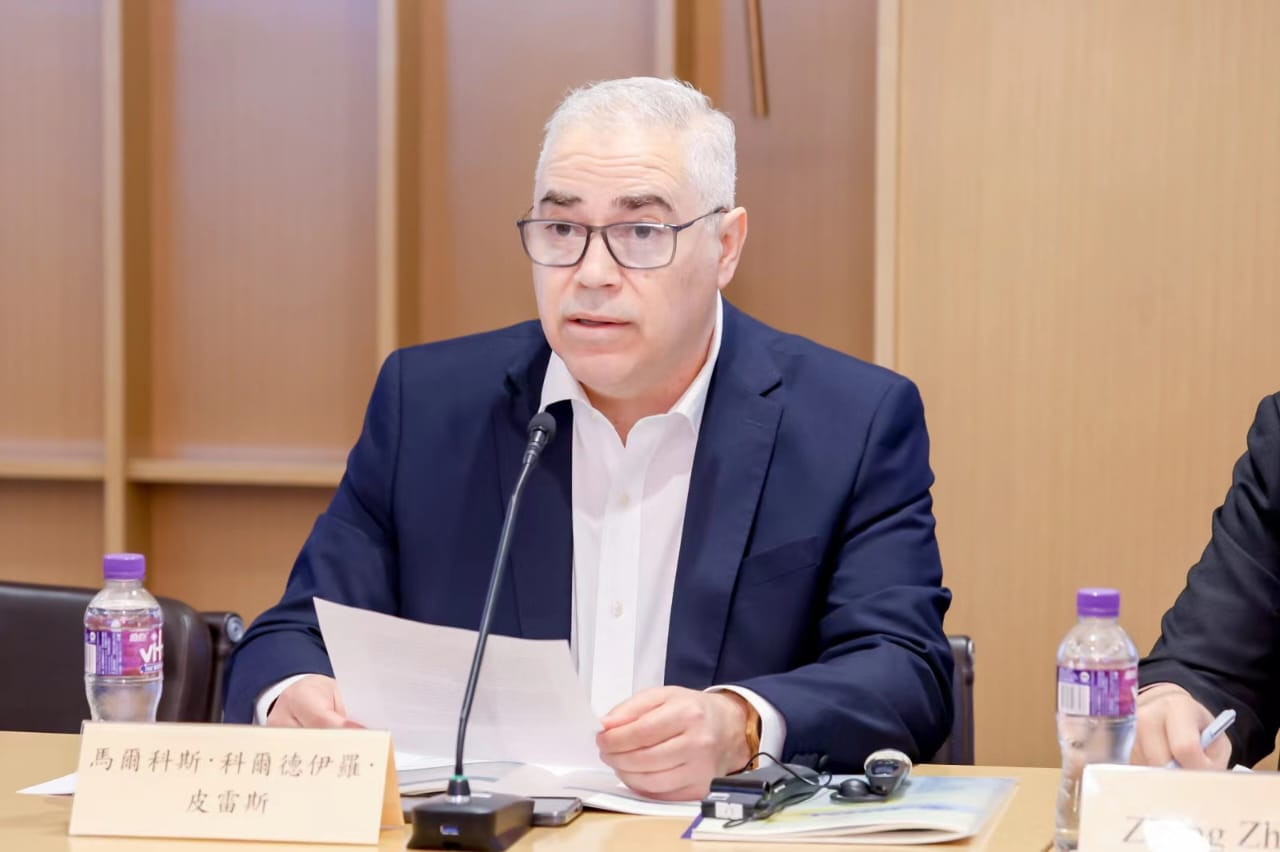Photo provided to Guangming Online Chinese President Xi Jinping’s recent visit to South America was crowned with great success. In Peru, he inaugurated the Port of Chancay, which is the largest maritime hub in South America and was built with strong support from China. Later, Xi played a prominent role in the G20 meetings, where he contributed to building consensus on issues such as tackling climate change, development and combating hunger and poverty. Finally, he paid a state visit to Brazil, where he announced, alongside President Lula, the strengthening of bilateral ties. Days before the visit, President Xi published an article in the largest-circulation newspaper in Brazil, Folha de São Paulo, in which he discussed the 50 years of Sino-Brazilian diplomatic relations. Established in 1974, bilateral relations have been solidified over the years, advancing political coordination at the level of global governance, trade flows, scientific and technological cooperation, and, more recently, defending nations' interests in the Global South. As the Chinese president highlighted, “China and Brazil have always maintained mutual respect and treated each other on an equal footing.” This aspect is fundamental to the diplomatic tradition of both countries. Brazil has cultivated an independent foreign policy for the last 50 years. China promulgated the Five Principles of Peaceful Coexistence 70 years ago. Both countries’ positions align very well on major issues in the international arena. Brazil and China are vocal in defending the right to development of all peoples. President Xi emphasized that “both countries have as important goals to accelerate economic development and improve the well-being of the people and are striving to progress towards modernization.” This is an essential topic since no major global challenge can be solved without expanding productive capacity and advancing science. China has taken a leading role in supporting infrastructure construction in developing countries through the “Belt and Road Initiative”. Brazil and China share a mutual interest in fostering synergies in infrastructure development. The port of Chancay, for example, stands to realize its full potential through joint support for the construction of a railway crossing the Andes, thereby creating a bioceanic connection. On the topic of development, it is essential to mention the role of the New Development Bank (NDB) and the Asian Infrastructure Investment Bank (AIIB) as creators of a new paradigm of international aid, forcing the World Bank and regional development banks to review their strategies and also finance infrastructure projects, something that was part of their original mandates but was abandoned at the height of neoliberalism. Regarding the G20 Summit, President Xi praised President Lula's proposal to adopt the fight against hunger and poverty and create the Global Alliance against Hunger and Poverty, to which “China expresses great appreciation and support.” Both Brazil and China have made exemplary efforts to eradicate extreme poverty. Brazil, one of the most unequal societies on the planet, managed to create a state policy to support the poorest families and encourage education and health as conditions for income transfer, the Bolsa Família Program. China, on the other hand, managed to achieve the goal of the 2030 Agenda by eradicating extreme poverty in 2021 through policies focused on shoring up the most backward rural communities. This effort paid off with the participation of government leaders, researchers, and students who created strategies that were appropriate to local conditions. Shifting from poverty alleviation to sustainability, the Chinese leader emphasized during the G20 debates that “to build a sustainable planet, the G20 must advocate sustainable production and life, and harmonious coexistence between man and nature.” This alignment in policy priorities is particularly evident in their shared commitment to mitigating greenhouse gas emissions. Both governments are advancing clean energy initiatives and promoting sustainable economies. For instance, Brazil’s five decades of experience in biofuel development and China’s leadership in manufacturing wind and solar energy equipment highlight the complementary strengths of these nations in advancing renewable energy. In this context of great convergence of interests, it is worth highlighting the elevation of bilateral relations to the level of “Brazil-China Community of Shared Future for a Fairer World and a More Sustainable Planet.” In 1993, during President Jiang Zemin's visit, the Brazil-China strategic partnership was signed by the government of Itamar Franco. In 2012, during the Rio+20 environmental conference, Prime Minister Wen Jiabao and President Dilma Rousseff advanced towards a Global Strategic Partnership. Today, 22 years later, “relations between the two countries are entering the best moment in history and their strategic, mutually beneficial and comprehensive nature is increasingly highlighted, setting an example of relations between the Global South and among major developing countries,” as stated in the joint statement issued by the diplomats of Brazil and China. It is worth noting that during the visit, 37 agreements were signed involving trade, finance, agriculture, telecommunications, culture, technology, education etc. Such documents can reshape the bilateral relationship to an unprecedented level, as the complementarities and synergies are immense. At a time when international relations face multiple and unprecedented challenges, such as wars, protectionism, racism, immigration, and climate change, the expansion of the partnership between the two largest developing countries in the East and the West is news that brings hope for the construction of a more just and equitable world order.
The Brazil-China community of shared future for a fairer world
Editor:谭婕倪
Source:en.gmw
Updated:2024-12-03 17:08:52
Source:en.gmw
Updated:2024-12-03 17:08:52
Special
Contact
Welcome to English Channel! Any suggestion, welcome.Tel:0731-82965627
lisl@rednet.cn
zhouqian@rednet.cn











